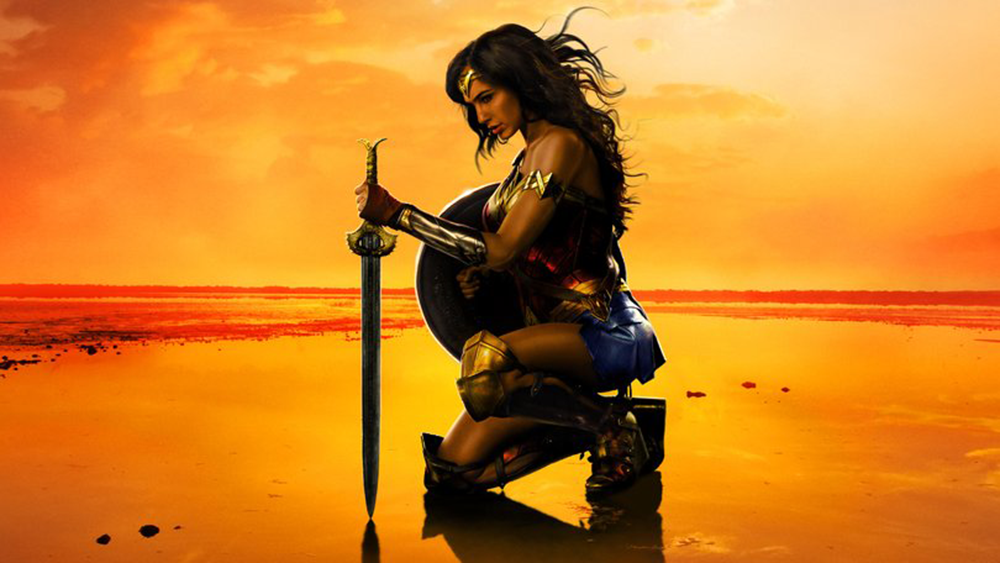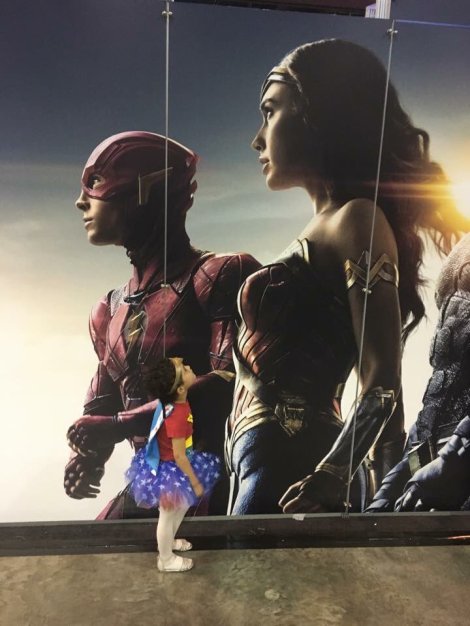
Since 1920, out of 170 super hero films made in America, 7 have been exclusively women lead. This includes the current Wonder Woman film. While there have been a larger amount of action films led by women that have been successful, it is not quite the same as the connotation a superhero film gives to the lead person.
Let’s take a moment to discuss Hollywood’s view of the lack of success in women lead superhero roles…
Hollywood has historically said that women lead superhero films bomb and therefore should not make any more. There have been 7 women lead superhero films since 1920…7 where 6 are considered to be flops. There have been 163 male lead superhero films with many considered box office failures and quite a few that went straight to home video. These losses by male lead films are not weighed so heavily by Hollywood as the 6 female lead films.
Let’s consider Green Lantern, Daredevil, Batman and Robin, Superman IV: The Quest for Peace, Nick Fury Agent of SHIELD (Made for TV movie with David Hasselhoff), The Punisher (direct to video)…Just 6 male lead films (out of many) that are considered substantial flops yet Hollywood does not blame having male leads for their failure.
*As an aside…if you want to watch something truly awful, I do suggest the Nick Fury film I mentioned. Please do compare it to any given female lead superhero film and make up your own mind on it.
From a scientific perspective, the claim that female lead superhero films are unsuccessful and therefore should not be made, would be crumpled up and thrown out into the waste bin. Only having 7 films is not a substantial sample size. To compare 7 to the 163 sample size of male lead films is irresponsible given it is not going to present an accurate and unwavering conclusion. Scientists would not rely on the percentage of success as 7 does not equal 163. There is no evidence to support such a claim.
It is far more reasonable to consider that advertising, writing (dialogue and plot), direction, acting, editing and use/presence of effects play the largest roles in the success of a film. There’s a delicate balance between them and that formula makes for a good film…not gender of lead character. Studios have to be willing to allow time and funding to develop a successful film.
*For those interested, math associated with sample size and statistics can be found here.
Let’s discuss the portrayal of women vs. men as superheroes…
The majority of action films we see (and nearly all 7 female superhero films) have hypersexualized lead women. They are scantily clad and shot from objectifying angles. Many of the female characters still rely on men to help them handle their problems and often have a romantic element. Many of these stories are from video games, books, graphic novels…primarily written and advertised to appeal to heterosexual men.
Images: Clockwise…Jean Grey, Catwoman (Halle Berry), and Poison Ivy



I want to make it clear…I am not criticizing the fact people do work and need each other in the real world. I want to point out that many male lead superhero/action films need no one substantial to help them, can romantically reject women, are seen as strong characters, and are universally successful. There is an imbalance.
We need women lead roles that place us in a light other than romantically needing a man, focusing on our bodies, and gaining success with the help of a man.
In 2015, a study was performed discussing the impact of female superheros on women and self image. An overview of the study can be found on Scientific American. The authors wanted to see if women felt more empowered watching women as superheroes over being victims. A portion of the article is quoted below.
“Pennell and Behm-Morawitz posited that exposure to these stereotypic female victims, whose primary appeal is sexual, may lower women’s body esteem, heighten the value they place on body image, and result in less egalitarian gender role beliefs and expectations. However, female characters have come a long way in the superhero genre, and it’s possible that the antidote to the helpless fair maiden is the competent, commanding superheroine. The X-Men films, for example, feature a number of empowering female characters like Storm, Jean Gray, and Dazzler, each of whom wields a unique special ability and displays impressive cognitive and physical competence. Perhaps exposure to this new generation of female heroines will result in more egalitarian gender beliefs, higher body esteem, and greater prioritization of physical competence over appearance.”
What they found is that the hypersexualized female superheroes made women feel worse about themselves. The focus was on impossible/unattainable body types, performing fantastic feats in high heels, and clothing that enhanced a sexual perspective. Women left feeling not empowered but terrible about themselves. They can not possibly be who these women are especially when attention is not on how strong the women are but what they wear, how they look, and how they manage to do impossible things while being objectified.
A video game example with a personal anecdote *MILD SPOILERS*…
INJUSTICE came out and I was excited to be able to play a fighting game with DC superheroes. I purchased the game and played the story mode to the finish. All of the women were scantily clad as per usual in the DC universe. What upset me the most? Out of 20 levels to play, I got to play a woman superhero once…Wonder Woman on the 18th level. I had played as Batman several times, Green Lantern once, Joker, and other not as well publicized male characters…who beat up computer player female DC characters in this mode.

Out of all of the well known female characters in the DC universe, the game developers wrote in a playable Wonder Woman once. On the 18th level, she manages to save the world with her army of women fighting the evil versions of superheroes from another dimension. During the last animation sequence, rather than appreciate the fact she saved the world, the only thing the male superheroes had to say about her is that she is prettier than the evil version. I bought this game. I was the one who paid for this.
I was livid over the treatment of women in this game…not having a playable female superhero until level 18 and then objectified nonetheless.
Finally, why does this Wonder Woman film matter?
Wonder Woman is a character all her own. She is strong, capable, and without need of anyone to accomplish her goals. She joins in on the fight to save the world because it is the right thing to do. The war cause needs her. She does not need them. She chooses to fight in a war to save humanity. She is both a symbol of femininity and equality that does not threaten her male peers. Given her portrayal in recent media (as the video game I mentioned previously) has male peers not acknowledging her accomplishments but her body.
What Wonder Woman is not…a gender flipped female version of a male character…Supergirl, Batwoman, Spider-woman…She is her own character in her own right with a solid history and well fleshed out story. She is an essential member to any team she chooses to join. The key factor being, she chooses to join and they are better for her being there.

In a recent interview with Screen Rant, Patty Jenkins (the director of the Wonder Woman film) discusses the importance of focusing on a person being a superhero and not the fact she is a woman…thus eliminating the arguments on either side regarding sexism.
“I think we’re in this very interesting time where these issues (sexism) have been around for a long time, but a lot of different people are saying, ‘Actually, not that much has changed for all of us.’ And so I think it’s a hotbed topic regardless. What I like and want to be a part of is the next wave, which is like where, yes, it’s going to bring up a lot of conversation about it, but the next wave is where we can just start making universal movies about other kinds of people, and not have it be an issue. Just say like, ‘Yes, this is a universal movie about a person wanting to be a hero – this one happens to be a woman.’ And that’s, I think, the real challenge, and so I went forward with that attitude.”
This film matters because it is not inherently about the gender of a character, but a character who is striving to save the world…a good story about a self sufficient character who needs no one and chooses to put their person in harm’s way to make the world better.
She is not hypersexualized. She is strong and focused. Yes, Wonder Woman is female. Yes, she is a role model for equality and little girls everywhere. We don’t feel worse about ourselves leaving a film embracing our strength.
Yes, it is a step forward to give a strong and equal voice of women represented in superhero films.

This film matters because it starts positive discussions about representing women in the roles we have always had…contributing to the world and meaning so much more than what we wear or how our bodies look.
Films such as this empower women showing their strength. We can cheer with Wonder Woman as she chooses to do the right thing on her own without worrying about makeup, heels, perfect hair or impressing a man.
She shows our little girls that what we choose to do with our lives are more important than how we look or what we can do in makeup and heels. Women’s contributions are necessary. This film shows us this.

Thank you for reading. You can contact me here, on twitter @ScientistMel or via email per request.
ScientistMel



Wonder Woman was a great movie and I hope it’ll be the catalyst needed for studios and producers to back more projects involving women directors, actors, and characters. The worst thing they can do now is chalk it up as “fluke.”
Also, would you be interested in sharing your work on Movie Pilot? I’d like to invite you to the platform as one of our content creators. Feel free to shoot me an e-mail, my contact details are on my “About” page. (o^.^)b
LikeLiked by 1 person
I would be happy to share my work! 🙂
LikeLike